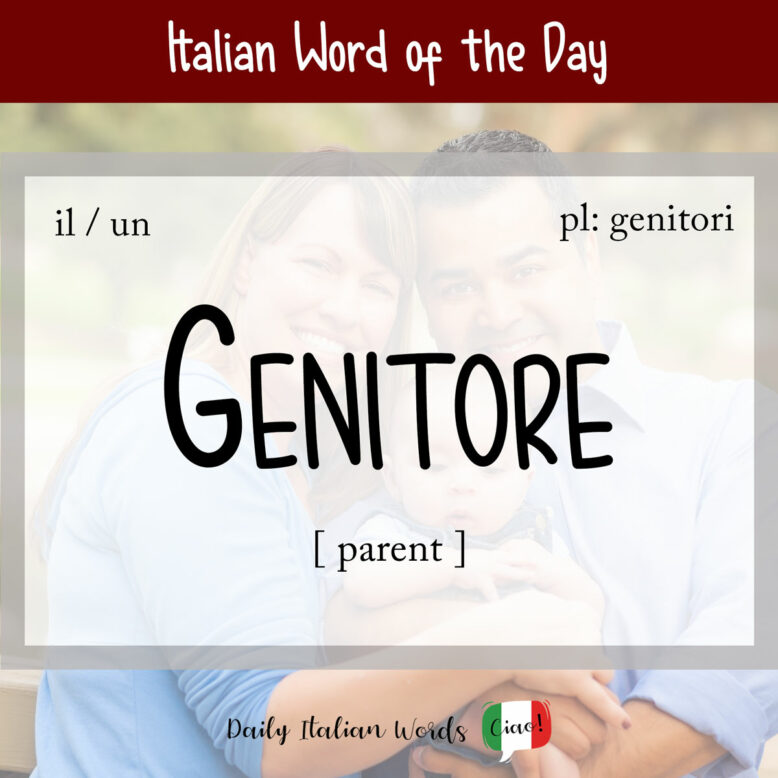Since becoming a genitore (parent), my life has been turned on its head. Tempo libero has become a distant dream, and every day is a whirlwind of activities and responsibilities. Yet, despite the challenges, the joy and fulfilment I find in watching my little boy grow and thrive make every moment worthwhile.
genitore
parent

Genitore is a masculine noun that takes the following definite and indefinite articles. It remains masculine regardless of the gender of the parent in question.
- il genitore = the parent
- i genitori = the parents
- un genitore = a parent
- dei genitori = some parents
That being said, the feminine equivalent genitrice does exist, although it is often used in an ironic, joking or literary manner.
The word comes from the Latin genĭtor -oris, which is derived from gignĕre, meaning to beget. If you find it difficult to remember, think of the English word genital, which relates to the reproductive organs involved in becoming a parent, or the verb to generate.
Important!
Many beginners mistakenly assume that the Italian word for parent is parente, but this is actually a classic example of a false friend. In Italian, parente means relative or kin, not parent.
I miei genitori hanno comprato una casa in Sicilia.
My parents bought a house in Sicily.

If you want to say to be a parent, Italians also use the verb fare (to do) as an alternative to essere (to be) – fare il genitore.
An interesting quirk of Italian is that people often omit the word genitori when referring to their own parents or the parents of the person they are addressing or talking about. Instead, they simply say i miei (mine), i tuoi (yours) and i suoi (theirs). Of course, this shorthand only works when it’s clear whose parents are being discussed.
Stasera vado dai miei (genitori) per cena.
I’m going to my parents’ house for dinner tonight.
In bureaucratic language, genitore can also refer to a person who has parental responsibility for a minor, not necessarily just the biological mother or father.
Heather Broster is a graduate with honours in linguistics from the University of Western Ontario. She is an aspiring polyglot, proficient in English and Italian, as well as Japanese, Welsh, and French to varying degrees of fluency. Originally from Toronto, Heather has resided in various countries, notably Italy for a period of six years. Her primary focus lies in the fields of language acquisition, education, and bilingual instruction.


